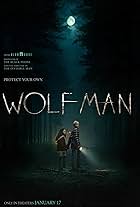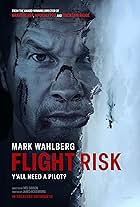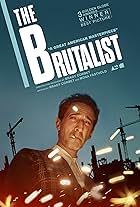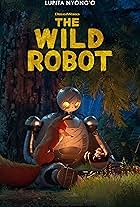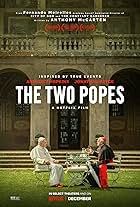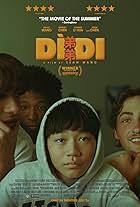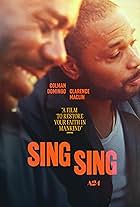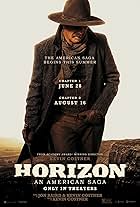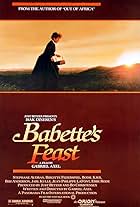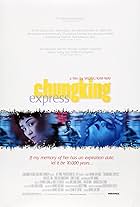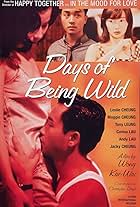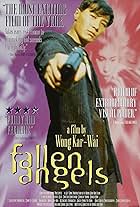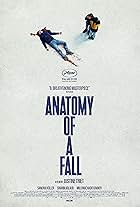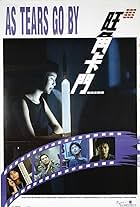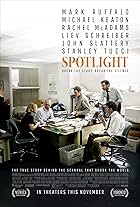KingKongKyle
Joined Sep 2004
Welcome to the new profile
We're still working on updating some profile features. To see the badges, ratings breakdowns, and polls for this profile, please go to the previous version.
Ratings860
KingKongKyle's rating
Reviews16
KingKongKyle's rating
What can I say about The Brutalist that hasn't been said? Probably nothing. You'll hear critics call it a "masterpiece" and a "modern classic". But those terms get tossed around a lot and are really a matter of personal opinion. As for me, I agree. I do believe this is a masterpiece and it will be considered a classic decades from now.
It's old-fashioned in the best ways possible. It really feels like something Coppola, or one of his European contemporaries, would have made in the late 70s to early 80s. It was shot with VistaVision and released to theaters as 70mm film prints. It's over 3.5 hours long and includes a short overture, a fifteen-minute intermission and an epilogue. And somehow, this epic film that spans decades and takes place on multiple continents was shot in just 34 days on a reported budget of ten million dollars. I mean really, that this film even exists in the modern filmmaking landscape is amazing.
Adrien Brody stands a strong chance of winning his second Oscar, as this is his best performance since The Pianist, and the best performance of the year for me. The rest of the cast is also excellent, including Felicity Jones, Guy Pearce, Isaach De Bankole, Alessandro Nivola and Joe Alwyn.
The Brutalist follows an accomplished architect who flees post-war Europe only to find life in America to be quite brutal. After giving up on his architectural dreams, an encounter with a wealthy benefactor helps him to realize and accomplish the brilliant designs in his head - but this relationship may not be as friendly or peaceful as it seems at first.
I drove an hour and a half one-way to see this film in IMAX (along with two other awards-buzzy films that weren't playing locally). I will say if it is possible to see it in IMAX, or at least a large premium screen, spring for it. But as the story is quite intimate in nature, it should play well on a standard screen too, even if it won't look quite as breathtaking.
The Brutalist is 3.5 hours of pure cinema bliss. It would be a perfect 10 for me, but there's a couple scenes I wish they had left out, and I wasn't in love with the ending. So, it's getting a 9 and may well be pulling some major upsets on my year-end list. This is the first 2024 film I've seen that may well top Dune 2 for me. (Though the films are so massively different that comparing them seems like a disservice to both.) Whatever format you go for, go see The Brutalist in theaters. It deserves the attention, and you'll be rewarded with a unique film experience. 9/10.
It's old-fashioned in the best ways possible. It really feels like something Coppola, or one of his European contemporaries, would have made in the late 70s to early 80s. It was shot with VistaVision and released to theaters as 70mm film prints. It's over 3.5 hours long and includes a short overture, a fifteen-minute intermission and an epilogue. And somehow, this epic film that spans decades and takes place on multiple continents was shot in just 34 days on a reported budget of ten million dollars. I mean really, that this film even exists in the modern filmmaking landscape is amazing.
Adrien Brody stands a strong chance of winning his second Oscar, as this is his best performance since The Pianist, and the best performance of the year for me. The rest of the cast is also excellent, including Felicity Jones, Guy Pearce, Isaach De Bankole, Alessandro Nivola and Joe Alwyn.
The Brutalist follows an accomplished architect who flees post-war Europe only to find life in America to be quite brutal. After giving up on his architectural dreams, an encounter with a wealthy benefactor helps him to realize and accomplish the brilliant designs in his head - but this relationship may not be as friendly or peaceful as it seems at first.
I drove an hour and a half one-way to see this film in IMAX (along with two other awards-buzzy films that weren't playing locally). I will say if it is possible to see it in IMAX, or at least a large premium screen, spring for it. But as the story is quite intimate in nature, it should play well on a standard screen too, even if it won't look quite as breathtaking.
The Brutalist is 3.5 hours of pure cinema bliss. It would be a perfect 10 for me, but there's a couple scenes I wish they had left out, and I wasn't in love with the ending. So, it's getting a 9 and may well be pulling some major upsets on my year-end list. This is the first 2024 film I've seen that may well top Dune 2 for me. (Though the films are so massively different that comparing them seems like a disservice to both.) Whatever format you go for, go see The Brutalist in theaters. It deserves the attention, and you'll be rewarded with a unique film experience. 9/10.
This was a truly beautiful adaptation. Turning this dark and often depressing story into a musical gives the material the ability to be empowering and uplifting.
The whole cast is amazing, and this may well be Oppenheimer's toughest competition for the ensemble award at this year's SAG awards (though Killers of the Flower Moon wouldn't be a surprise either).
Somehow this production seems both staged and cinematic, thanks in part to seamlessly moving between interior moving sets and gorgeous exterior landscapes. None of the songs seem to pop up out of nowhere, but rather seem perfectly placed to complement the drama and propel the story forward.
The audience I was with clapped both when Celie finally stood up for herself and later when the credits rolled. It doesn't happen often at the cinema anymore, for an audience to feel in tune with each other and the characters on screen; the feeling that we are all sharing an important experience.
The production spares no expense with beautiful production design, vibrant costumes and hair/make-up, and creative cinematography that captures it all perfectly. This will definitely be a must own 4K release when the time comes.
The whole cast is amazing, and this may well be Oppenheimer's toughest competition for the ensemble award at this year's SAG awards (though Killers of the Flower Moon wouldn't be a surprise either).
Somehow this production seems both staged and cinematic, thanks in part to seamlessly moving between interior moving sets and gorgeous exterior landscapes. None of the songs seem to pop up out of nowhere, but rather seem perfectly placed to complement the drama and propel the story forward.
The audience I was with clapped both when Celie finally stood up for herself and later when the credits rolled. It doesn't happen often at the cinema anymore, for an audience to feel in tune with each other and the characters on screen; the feeling that we are all sharing an important experience.
The production spares no expense with beautiful production design, vibrant costumes and hair/make-up, and creative cinematography that captures it all perfectly. This will definitely be a must own 4K release when the time comes.
Nothing you've read or heard about Todd Phillips' Joker can really prepare you for just how disturbing it really is. It's not that it's the darkest film ever made. It's the genre that it attaches itself to. "Comic book" movies, even the darkest or most violent (think Logan or Blade) are still designed to entertain rather than disturb. True, they deliver emotional moments such as certain character deaths in Logan or Avengers: Endgame that leave an impact; but few, possibly none, have been designed to truly disturb the viewer and creep under the skin - until now.
Is Joker a good film or just a disturbing one? You would have to be both to be effective. Just watching a deranged person senselessly murder people on screen wouldn't keep an audience, or at least a sane audience, engaged. Joker benefits from a slow burn that never feels slow; a deliberate pace that feels just that - deliberate. Phillips wants his audience to spend adequate time with this character; not so we can sympathize with his him, but so we can understand him. In doing so, the filmmakers have made us unwitting accessories to Arthur's (Joker) hideous actions. This combination of incendiary writing (Phillips and Scott Silver) and patient editing (Jeff Groth) makes the build up to the unpredictable final act much more rewarding than it would have been in a more frenetically-paced film.
The film also looks amazing. Lawrence Sher's cinematography often takes unique and interesting angles without feeling awkward of overly-artsy. The production team has done an amazing job of making this film feel like its been un-vaulted straight from the 1970s. Many period films look like their respective eras, but it takes a considerable amount of talent and craft to make them feel like the era. As a result, 1970s Gotham feels authentic and like a character in its own right. There's also an intense score here by Hildur Guðnadóttir. Sometimes it feels intrusive - and this may bug some viewers. I believe this is completely intentional; intending to unnerve us even further.
Joker boasts a talented cast including Robert De Niro, Zazie Beetz, Frances Conroy, Brett Cullen and Brian Tyree Henry. Everyone is good in their roles, but this is really Joaquin Phoenix's show - and the rest of the cast is mostly there to propel his character forward. I believe many will consider this Phoenix's best best performance to date. I certainly found it to be one of his best (I still have a soft spot for his performance in Her). This is an interesting take on the Joker character in that they've nearly stripped him of any likability. Not that Joker is meant to be likable - but there is a certain amount of entertainment value in previous interpretations of the character - certainly in Nicholson's and Romero's, and even in Ledger's darker version. But this Joker is not at that point yet. This is an origin story. Arthur is a disturbed individual with serious mental illnesses. What we see is the result of taking such a man and ripping away his treatment, medications and any sort of sympathy from those surrounding him. Add to that downright mistreatment from others, and it's what takes a troubled man with a reasonable sense of right and wrong and turns him into a diabolical killer incapable of such moral distinctions. It's how Athur becomes Joker. Watching Phoenix unfold all this is mesmerizing. He shows us a man on the brink of implosion, who turns his frustration into violent explosion in the final acts. All the talk of awards consideration around Phoenix's performance here is definitely deserved.
About three quarters into Joker, I considered to myself whether American mainstream audiences were ready for a film like this. We've seen such characters before in movies like Taxi Driver, Silence of the Lambs, or even less violently in There Will Be Blood. But I think moviegoers as a whole have certain expectations from movies that exist with the genre of popular comic book adaptations - especially when they feature characters as well-known and even liked as the Joker. Can audiences enter a comic book movie with an open mind, ready not to be entertained, but provoked? Can we allow a comic book movie to lead us to important conversations about societal treatment of mental illness and violence in media? Can we say this is a new type of comic book movie? Or do we have to say this isn't really a comic book movie at all - it's a dark, dramatic thriller that happens to be connected to a comic book universe? Can we accept that Joker is just a darn well-made film without cramming it into genre constructs? One thing to consider is that even the darkest or most violent comic book movies are fantastical. Logan and Deadpool are about mutants with super-powers, Blade is about vampires. But Joker is very realistic. This is a story of a man who could exist and a series of events that could definitely happen. This realism makes the film just that much more unnerving. Over-analyzing any movie can definitely hurt one's perception of it and even distract from its qualities. This is one case however where I believe the more one thinks about it the more you'll want to analyze and deconstruct it - in a good way - not to find it's flaws, but rather it's overall meaning.
I'm docking a point for an unnecessary epilogue that distracts from a perfect ending point one scene earlier. There's also a frustrating ambiguity regarding the fate of a pair of characters that I wish the film would have been more transparent about. But these are minor complaints for a movie that will stand out as one of the most interesting and uneasy times I've had at the cinema this year. (9/10) (A-)
Is Joker a good film or just a disturbing one? You would have to be both to be effective. Just watching a deranged person senselessly murder people on screen wouldn't keep an audience, or at least a sane audience, engaged. Joker benefits from a slow burn that never feels slow; a deliberate pace that feels just that - deliberate. Phillips wants his audience to spend adequate time with this character; not so we can sympathize with his him, but so we can understand him. In doing so, the filmmakers have made us unwitting accessories to Arthur's (Joker) hideous actions. This combination of incendiary writing (Phillips and Scott Silver) and patient editing (Jeff Groth) makes the build up to the unpredictable final act much more rewarding than it would have been in a more frenetically-paced film.
The film also looks amazing. Lawrence Sher's cinematography often takes unique and interesting angles without feeling awkward of overly-artsy. The production team has done an amazing job of making this film feel like its been un-vaulted straight from the 1970s. Many period films look like their respective eras, but it takes a considerable amount of talent and craft to make them feel like the era. As a result, 1970s Gotham feels authentic and like a character in its own right. There's also an intense score here by Hildur Guðnadóttir. Sometimes it feels intrusive - and this may bug some viewers. I believe this is completely intentional; intending to unnerve us even further.
Joker boasts a talented cast including Robert De Niro, Zazie Beetz, Frances Conroy, Brett Cullen and Brian Tyree Henry. Everyone is good in their roles, but this is really Joaquin Phoenix's show - and the rest of the cast is mostly there to propel his character forward. I believe many will consider this Phoenix's best best performance to date. I certainly found it to be one of his best (I still have a soft spot for his performance in Her). This is an interesting take on the Joker character in that they've nearly stripped him of any likability. Not that Joker is meant to be likable - but there is a certain amount of entertainment value in previous interpretations of the character - certainly in Nicholson's and Romero's, and even in Ledger's darker version. But this Joker is not at that point yet. This is an origin story. Arthur is a disturbed individual with serious mental illnesses. What we see is the result of taking such a man and ripping away his treatment, medications and any sort of sympathy from those surrounding him. Add to that downright mistreatment from others, and it's what takes a troubled man with a reasonable sense of right and wrong and turns him into a diabolical killer incapable of such moral distinctions. It's how Athur becomes Joker. Watching Phoenix unfold all this is mesmerizing. He shows us a man on the brink of implosion, who turns his frustration into violent explosion in the final acts. All the talk of awards consideration around Phoenix's performance here is definitely deserved.
About three quarters into Joker, I considered to myself whether American mainstream audiences were ready for a film like this. We've seen such characters before in movies like Taxi Driver, Silence of the Lambs, or even less violently in There Will Be Blood. But I think moviegoers as a whole have certain expectations from movies that exist with the genre of popular comic book adaptations - especially when they feature characters as well-known and even liked as the Joker. Can audiences enter a comic book movie with an open mind, ready not to be entertained, but provoked? Can we allow a comic book movie to lead us to important conversations about societal treatment of mental illness and violence in media? Can we say this is a new type of comic book movie? Or do we have to say this isn't really a comic book movie at all - it's a dark, dramatic thriller that happens to be connected to a comic book universe? Can we accept that Joker is just a darn well-made film without cramming it into genre constructs? One thing to consider is that even the darkest or most violent comic book movies are fantastical. Logan and Deadpool are about mutants with super-powers, Blade is about vampires. But Joker is very realistic. This is a story of a man who could exist and a series of events that could definitely happen. This realism makes the film just that much more unnerving. Over-analyzing any movie can definitely hurt one's perception of it and even distract from its qualities. This is one case however where I believe the more one thinks about it the more you'll want to analyze and deconstruct it - in a good way - not to find it's flaws, but rather it's overall meaning.
I'm docking a point for an unnecessary epilogue that distracts from a perfect ending point one scene earlier. There's also a frustrating ambiguity regarding the fate of a pair of characters that I wish the film would have been more transparent about. But these are minor complaints for a movie that will stand out as one of the most interesting and uneasy times I've had at the cinema this year. (9/10) (A-)
